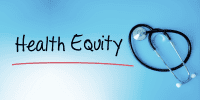Editor’s note: The authors are the executive director and senior advisor, respectively, of The Truth About Nursing, a nonprofit organization that seeks to increase public understanding of nurses’ role in health care and to promote more accurate, balanced media portrayals of nurses.
AMERICANS continue to rate nursing as the most honest and ethical profession. And in private conversations, many people rave about nurses’ virtue and compassion.
But as we saw last September with ABC’s television show The View, public affection for nurses doesn’t mean everyone understands the education and skill needed to practice nursing. The show’s hosts mocked a Miss America contestant for the monologue she performed in the talent competition. Dressed in scrubs, sneakers, and a stethoscope, Miss Colorado Kelley Johnson, a registered nurse, spoke about her conversations with an Alzheimer’s patient. One View host sarcastically remarked, “She shockingly did not win.” Another asked why she had on “a doctor’s stethoscope.” Clearly, these comments reflect lack of respect toward nurses—an attitude that undermines the nursing profession and puts patients at risk.
So who should take the lead in improving the public’s understanding of nursing? Dr. Oz? Oprah?No—nurses should. We must play the leading role in educating the public about us. We have the power and responsibility to foster change for our profession.
Project a strong self-image
Obviously, we need to change how media outlets portray nursing. But global change starts with local action. Certain stereotypes have damaged nurses’ selfimage— to the point that some nurses need to be reminded of their own value before they can persuade the public of it.
To convey self-respect, project a professional image in all interactions. When you meet someone (including patients), introduce yourself as a nurse. Include your last name, as physicians do. This doesn’t mean you should be cold or formal; just do what other self-respecting professionals do. Tell patients what your role is, including your duty to advocate for them, even in a casual way. (For ideas on what to say, download our organization’s poster, “I am your registered nurse.”)
Consider “nursing out loud” by describing your assessments and interventions as you perform them (consistent with patient confidentiality and sensitivity). This can help patients, family members, and physicians better understand your education and skills.
Even your clothes influence how others see you. Some nurses wear scrubs with cartoon characters on them. But consider: How many physicians, architects, teachers, or other educated professionals do that?
Educate colleagues
Nurses already teach physicians a lot about clinical care, but they could do more to show physicians the value of nursing itself. You might consider starting a joint learning or nurse-shadowing program, such as those at the University of Michigan Medical School and Dartmouth Medical School.
Don’t hide
The benefits of nursing care—including preventing adverse events—can be hard for people to see. At the same time, many nurses have become expert at masking their expertise, in part to avoid conflict with physicians.
But that’s dangerous. We must advocate for patients and ourselves. We’re not saying you should brag, but don’t let others get credit for nurses’ lifesaving work. If not for yourself, do it for your colleagues. We’ve designed a bumper sticker that tries to help; it reads: “Save Lives. Be a Nurse.” Contact us at info@truthaboutnursing.org and we’ll send you some.
Advocate for progress on public health matters
In 2014, the American Nurses Association (ANA) advocated on behalf of a Navy nurse who declined on ethical grounds to participate in force-feeding detainees at Guantanamo Bay. When nurses and nursing organizations speak out on such issues, the public sees they are committed, engaged healthcare professionals.
Establish relationships with local media representatives and try to get coverage for nursing in your workplace. Many hospital websites highlight only physicians, so consider forming a working group to increase awareness of nursing achievements and innovations. Tell your organization’s public relations personnel about nursing expertise and ask them to promote the organization’s nurses to the media as health experts. Make it a priority to help media producers and reporters understand nursing when they ask. Respond promptly and, once again, don’t hide. Many nurses shrink from media attention and hide from the cameras. But remember—nurses save lives, and nursing deserves positive attention.
Some nurses gain positions of influence and appear in the media—yet their nursing status doesn’t appear with their image or name. So try to display your degree and RN status; if you can use only one credential, use “RN.” That shows the public you are a nurse. Your language will reveal your education.
Seek to change media portrayals of nurses
To improve media portrayals of nurses, we need to work directly with media outlets. You can help by developing your own media expertise. Observe experts who appear on major media outlets. Focus on good presentations of nursing, like Diana Mason’s 2014 appearance on the Katie show during a tribute to nurses. If you expect to have ongoing contacts with the media, consider getting formal training.
Praise the media for what it does well
For many years, The Truth About Nursing has issued annual awards for the best and worst portrayals of nursing. We try to find positive elements even in media reports or programs that are harmful to nursing. Of course, that can be difficult. (Yes, we’re looking at you, Grey’s Anatomy!) Submit feedback to media outlets; phone calls and hard-copy letters probably have the biggest impact, but you can also give positive reinforcement through email, social media, and Twitter hashtags (for example, #midwife delivers information to new readers about OB nursing expertise).
Persuade the media to reconsider specific content
When you observe negative nursing portrayals anywhere—TV shows, advertising, websites, billboards, or elsewhere—contact the responsible party and urge them to reconsider. Suggest specific alternative approaches for the media outlet to consider. Advocate for positive nursing portrayals via social media, phone calls, emails, and letter-writing campaigns, as The Truth About Nursing has done with petitions on Change.org. When trying to influence ongoing media portrayals, such as advertising, identify key decision-makers; then collaborate with other advocates. And above all, be persistent.
Take on large-scale advocacy
The Miss America brouhaha demonstrates the value of diverse, largescale advocacy. After the offensive The View episode, nurses took to social media to protest the hosts’ remarks. Virginia nurse Amanda Claybrook’s Change.org petition got more than 50,000 signers; ANA and other nursing groups released statements expressing dismay. As a result, The View lost major sponsors. The Truth About Nursing also started a petition and discussed with The View’s publicity director specific ways the show could make amends.
Meanwhile, the mainstream media ran stories and op-eds about the incident. Within a week, The View apologized for the hosts’ remarks and invited nurses onto the show “to share firsthand what these hardworking nurses do on a daily basis.” Two nursing professors appeared on the show to explain some aspects of nursing. The Dr. Oz Show devoted an entire episode to nursing, although information about nursing skills was sadly limited. Media creators’ responses to nurses’ protests and petitions show the media can be persuaded to let nurses play a role in shaping program content. (See Scrubbing out MTV’s “Scrubbing In”)
Of course, no one knows nursing as well as nurses themselves do. Ideally, we should create our own media and tell our own stories, in vehicles ranging from broadcast TV shows to modest websites and blogs. But that’s a topic for another time. Meanwhile, The Truth About Nursing offers many ideas on how to improve nursing’s image and in our book, Saving Lives: Why the Media’s Portrayal of Nursing Puts Us All at Risk. We hope you’ll join us in taking a stand for nurses and patients.
The authors of Saving Lives: Why the Media’s Portrayal of Nursing Puts Us All at Risk, Sandy and Harry Summers are the executive director and senior advisor, respectively, of The Truth About Nursing, a 501(c)(3) nonprofit organization. You can reach them at www.truthaboutnursing.org.


















